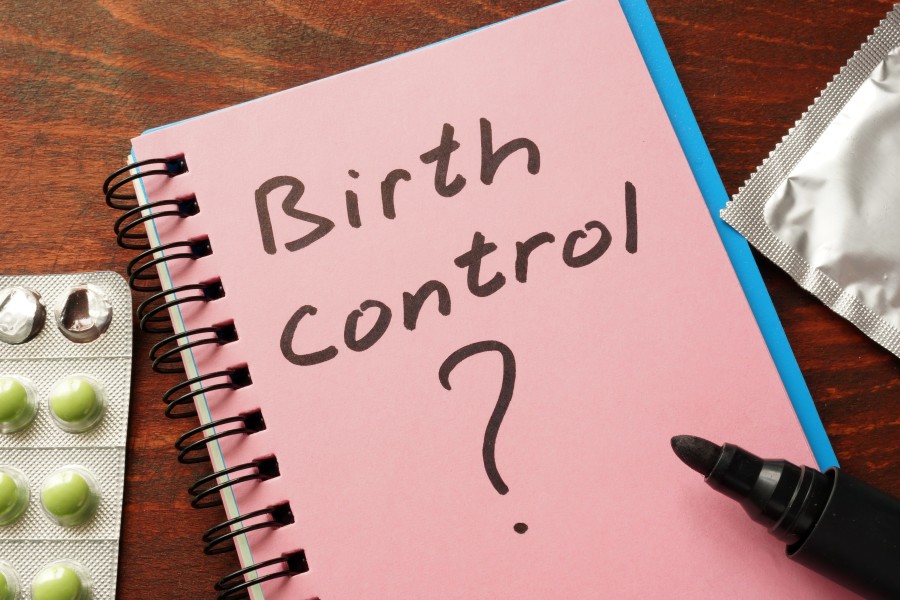Think you can’t have a surprise pregnancy once you hit 45? Think again.
In fact, a new study suggests that some U.S. women 45-50 are at risk for an unintended pregnancy because they’re having sex with men but not necessarily using birth control.
If you’re surprised, you’re in good company. The federal government’s National Survey of Family Growth, which has collected family planning and contraceptive use data since 1973, surveyed only women 15 to 44 years old until this year, when it raised the upper age limit to 49.
As a result, little is known about current contraceptive use and the risk of unintended pregnancy among U.S. women. “Several countries do collect this information from older women,” the authors of the new study write, “and European data suggest approximately 30% of women aged 45 to 49 years are not using any contraception.”
No one knows the age at which a woman is no longer at risk for an unintended pregnancy, notes the Centers for Disease Control and Prevention. “Hormonal testing promises a better glimpse into probable age at which an individual woman reaches menopause, but the technology has not been perfected,” the authors of the new study, who work at the CDC, write in their report.
Although uncommon, women 45 and older can conceive without fertility treatments, according to the CDC, and the American College of Obstetricians and Gynecologists advises that women who don’t want to get pregnant continue using birth control until they’re 50-55.
If you’re healthy, all birth control methods are generally considered safe to use until you hit menopause, although certain medical conditions that are more common with age, such as high blood pressure and diabetes, might preclude the use of contraceptives that contain estrogen, such as birth control pills, according to the authors of the new study.
Of course, a 45-year-old isn’t as fertile as a 25-year-old. Fertility drops after age 44, and the average age at which U.S. women reach natural menopause is about 51½. The birthrate is increasing for those aged 45-49, from 3 births per 10,000 women in the early 1990s to 8 births per 10,000 women in 2013, although much of that rise is probably due to planned births resulting from fertility treatments.
But no one knows for sure how many pregnancies in U.S. women 45 and older are unintended—either unwanted or mistimed–mainly because no one before had ever asked that question, the scientists say. Of women 15-44, those 40-44 have the third-highest proportion of unintended pregnancies (48%), behind only teenagers (82%) and women 20-24 (64%).
To see whether older women are at risk for having an unintended pregnancy, scientists had to turn to data from Masssachusetts, the only state whose health department has collected data about birth control use from women 45-50.
The data include information about whether women use contraception, what kind they use and whether they could become pregnant. If women were sexually active with a man in the past year, weren’t currently pregnantor trying to conceive, and hadn’t had a hysterectomy, they were considered to be at risk for an unintended pregnancy. (One bit of information that would have been helpful but isn’t collected is whether the women were menopausal, which, of course, would have prevented them from having an unintended pregnancy even if they weren’t using birth control.)
About three out of four women were at risk for an unintended pregnancy, and that was similar across all age groups, including those 45 to 50. But the older women got, the less likely they were to report using any birth control. About 17% of women 45 to 50 said they used no birth control, compared to about 9% of those 18-24.
In the United States, about half of all pregnancies are unintended, and they could have potentially “devastating consequences” in older women, the researchers write.
In other words, even when you reach the point where you’re thinking more about hot flashes than potty training, you likely still need to stay on birth control.
Please, let us know your opinion in the Comments section below. Thank you!
You may also want to read the following related posts in Pregistry’s blog: Delaying Motherhood: It’s a Thing, Advanced Maternal Age: How Risky Is Risky?, and Becoming a Mother After 50.

